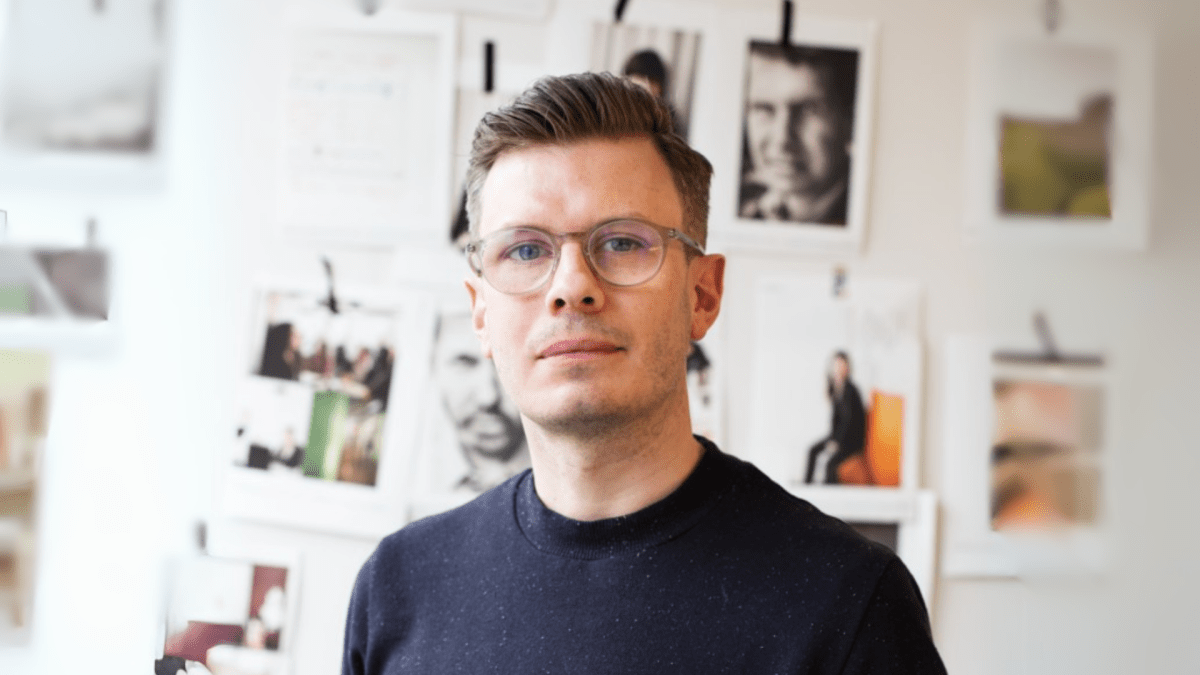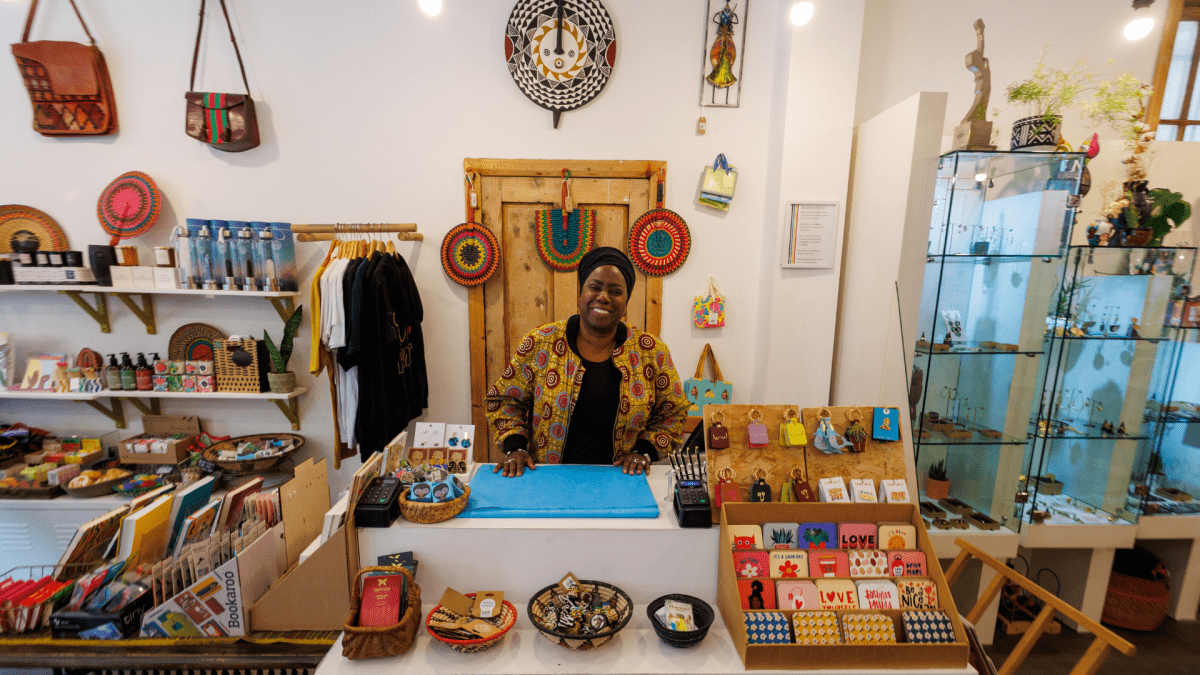Redefining Failure: A Conversation with Growth Marketing Expert Mark Jennings
Failure is often seen as an inevitability, a shadow that hangs over our aspirations. Yet Steve Jobs once said, “I believe the only thing that has allowed me to pursue my dreams is to fail, and fail again.” This view underscores the idea that failure is not the end, but rather a crucial step on the journey to success.
In this interview, we have the opportunity to meet Mark Jennings, a marketing and technology specialist, passionate about reading and geek culture, and with 25 years of experience. During his career, Mark has founded two companies, including raising a six-figure fundraising for one of them.
His definition of failure has evolved over the course of his professional experiences and his journey brilliantly illustrates how failure can become a real driver of resilience and innovation. Through his reflections, he invites us to reconsider our perception of failure and to embrace the lessons it offers us, both professionally and personally.
- How do you personally define failure and how has this definition evolved throughout your professional career?
I grew up in an environment where success was synonymous with social and professional advancement. My parents' dedication to work, often to the detriment of the family structure, shaped a vision of success for me.
However, my perception of failure emerged when I realized that my career was not following the same pattern. My father, an internationally recognized doctor, had a clear trajectory, while I had chosen the path of startups, a field without benchmarks or figureheads to follow. This generated in me a feeling of failure, especially in my early days, because despite my efforts, I did not always receive the recognition I thought I deserved.
Today, my definition of failure has evolved considerably. It is now based on the quest for balance. In my youth, I worked tirelessly, to the point of damaging many friendships and professional relationships, which led to burnout.
Now I understand that finding this balance is crucial. Professional and financial success are undeniably important; they must reward the risks and efforts invested to ensure a peaceful future. However, we must not neglect the present. I now ask myself: am I a good employer? Am I building a sustainable business? Am I a good parent? Am I there for my daughter? What is my stress level?
This perspective has changed, partly because I have reached a certain level of success in my career and faced various failures. Becoming a father and moving to Sweden, where the understanding of success and failure is more nuanced, has also influenced this evolution.
- What were your first feelings when you realized that your business was failing, despite having access to significant financial investments?
In both of my startups, I always felt like they were doomed from the start. Although they appeared to be very successful from the outside—winning awards, getting featured in major publications, and achieving solid sales—I was constantly plagued by doubts about the future.
This anxiety intensified when I hired employees who were making life-changing decisions, like buying a home or starting a family. I often projected myself into a future where investments would fail or the business would fail, and I had to imagine explaining to these people that their jobs were no longer secure.
This insidious and omnipresent feeling of failure was always with me. In my youth, I was quite good at ignoring it and moving forward regardless. However, today, I carefully choose the businesses I get involved in, as well as the way they operate, in order to minimize this feeling of failure as much as possible. I have also found that I have become much less entrepreneurial in light of these experiences, as I enter a new phase of my life.
- Does the proliferation of public figures sharing their experiences of failure help to redefine our perceptions, making failure less intimidating and more acceptable?
When I closed my first company in 2008, I felt a deep sense of shame. Despite the global financial crisis, I felt entirely responsible. Many employees also tended to blame me, partly because I had run the company very rigorously and had not been mature enough to share both the successes and the difficulties.
In my second company, which ultimately failed, I took a much more transparent approach with investors, communicating honestly about the state of the company. When we made the decision to close—the right decision—my sense of failure was much less intense.
However, as we all know, even the world’s greatest entrepreneurs have experienced a series of failures before they achieved success. They often only talk about their successes. Plus, there’s a “hustle” culture that promotes the idea that if we work hard enough, neglecting our sleep and relationships, we will inevitably succeed. Yet I’m convinced that it’s our failures that truly shape us—whether they’re failures in relationships, academics, or navigating social dynamics at school. These experiences strengthen us and give us valuable perspective, as long as they don’t crush us.
There is a gap between the expectation of pre-ordained success and the devastation that arises when we don’t achieve it or struggle to redefine our vision. For example, holding on to a business that should have closed, out of fear of failure, speaks volumes about our mindset. The more people share their stories of failure, the easier it becomes for others to understand that failure is part of the journey.
Of course, not everyone is comfortable with failure, and that’s perfectly fine. But in today’s market, you could be fired tomorrow, no matter how good you are. So removing shame from certain aspects of life that don’t need it is essential to me. If I can contribute to that, I certainly will. Even in non-religious societies, we have the idea that certain things should be shameful, and I fundamentally disagree with that.
- The idea of not being defined by failure is a common concept. Did it resonate with you, and how did you overcome that feeling?
That’s a valid question. I think that while many people say, “I won’t be defined by failure,” they probably had to go through a process—perhaps therapy or self-reflection—to come to see their failures in a new light, thus defining them as potential successes.
I suspect that most people with career goals or an entrepreneurial spirit have an aversion to failure. We are not naturally inclined to do this. We tend to believe that we have a divine right or intelligence that allows us to stand out from others and take greater risks, whether entrepreneurially or creatively. As a result, not being recognized or experiencing financial setbacks can feel like a real setback. I think we should embrace this feeling; it is completely normal to experience it. The idea that failure is a learning opportunity or that we should “grow through failure” often seems disconcerting to me. We should not let failure define us—after all, it is not a label we wear—but it is crucial to recognize the impact it can have on us.
One of the most important lessons I learned from my failures in my last business is that the reality is that most people don’t care as much as we think they do. Sure, investors pay attention to financials, and employees may worry about the company’s situation if it’s not communicated well. However, it’s important to understand that ultimately, what people care about most is you as an individual. If someone doesn’t care about you, you’ve already learned to recognize your true friends.
It is essential to reflect on failure because it is a part of life. We should ask ourselves: "What did I learn from this experience, and how will I integrate it into my future life?"
- As a parent, how do you think the experience of failure can contribute to a child's development?
This question is particularly close to my heart because I grew up in an environment where failure was not an option. You were expected to work hard, move forward and never look back. This gave me a distorted view of success; I believed that wearing the right suit, having the right accent and going to the right school was enough to pave the way to success. In my upbringing, failure was seen as weakness, and growing up in a very masculine and traditional environment held me back considerably. I treated others this way too.
In my twenties, I was a passionate entrepreneur, convinced that anyone who didn’t share my passion was weak. However, I learned a lot through interacting with people and, ultimately, through raising my own child. I noticed that my daughter exhibits similar traits: for example, when she tries to climb a tree and fails on the first try, she gets very frustrated and wants to give up. I need to create an environment where she feels comfortable trying again and again, so that she can discover her abilities and build on those experiences over time.
For me, this requires patience, something I’ve had to cultivate. I want to create a safe space for my daughter to fail without fear of criticism. If she criticizes herself, I want her to understand where those feelings are coming from, and that they shouldn’t be influenced by outside sources. Resilience and problem-solving skills are key, and I believe these abilities are innate in children. They love to throw a rock in the water and see how many circles it creates. It’s us, as parents, who sometimes turn these explorations into competitions or comparisons, like saying, “You didn’t do as well as your brother.”
It is our responsibility to give our children the space to experience failure as a playful experience and to remind them that it is okay to make mistakes. This could mean not going to college, not finishing a job, or leaving a relationship, and that is totally okay. Taking a different path does not mean failing. Our career paths are often different from those of our parents, who may have spent their entire lives in the same job. That is perfectly okay; it is just different, not worse.
- Finally, failure and success are often linked. Do you think everyone has to fail to succeed?
There is no denying that everyone has experienced failure at some point or another. Some people choose to rewrite their failures as essential steps on their journey to success, and that is absolutely commendable. They have the right to tell their story however they want. However, it is true that everyone has to face failure at some point in their life.
I am convinced that the most accomplished people are those who are less concerned with the judgment of others. They often grew up in environments where initiative and risk-taking were more valued than the fear of failure. Living in fear of trying something new can become very limiting.
That said, I believe micro-failures are essential. Recognizing the small signs that we are moving away from our goal and making adjustments as needed is crucial. I myself have been stubborn and arrogant, thinking that persistence in the face of failure would eventually pay off.
As we age, it is also vital to re-evaluate our concept of success in light of our environment. In a capitalist system, opportunities are often limited unless you are born into a wealthy environment or good circumstances. Many successful people benefit from advantages related to their background. While they may have enriched their paths, the ingredients for their success were often already there.
Comparing our success to others can be difficult, but it’s a human response. When someone fails, we tend to assume it’s their fault. When we fail ourselves, we’re more likely to blame external factors. This double standard reveals our biases toward others’ failures and how we view our own.
So yes, fail and fail fast, but learn from it. Step back and take a big picture perspective. Once you have that big picture, ask yourself what a younger version of you would think of your current success. You may have already reached a certain level of accomplishment, but if you’re too focused on your career and goals, you may have a hard time acknowledging it. This is probably one of the hardest lessons to learn.
Link: Mark Jennings



